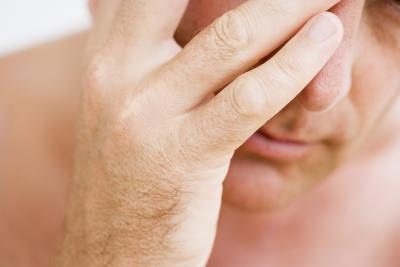Tension headaches cause a constant pressure or ache around the head near the temples or in the back of the head and neck. They are most often caused by stress.
Other People Are Reading
Causes
Tension headaches are the most frequent type of headache experienced by adults. They are often caused by contraction of the scalp and neck muscles due to stress. They also may be related to chemical changes in the brain. Other contributing factors include inadequate rest, poor posture, depression, anxiety, fatigue, overexertion or hunger.
Risk factors
Middle-aged women are the most common suffers of tension headaches, although anyone can experience them.
Symptoms
The most common symptom of tension headaches is mild to moderate pressure or pain in the top, sides and back of the head. These headaches typically occur later in the day and may be accompanied by difficulty sleeping, irritability, mild sensitivity to light and sound, disturbed concentration or general muscle aches.
Over-the-Counter treatments
Tension headaches can be treated with over-the-counter pain killers such as acetaminophen (Tylenol), aspirin or ibuprofen (Advil).
Preventative Treatment
For chronic sufferers, doctors may prescribe antidepressants to control depression, a likely trigger of tension headaches. They may also recommend relaxation or stress management training.
